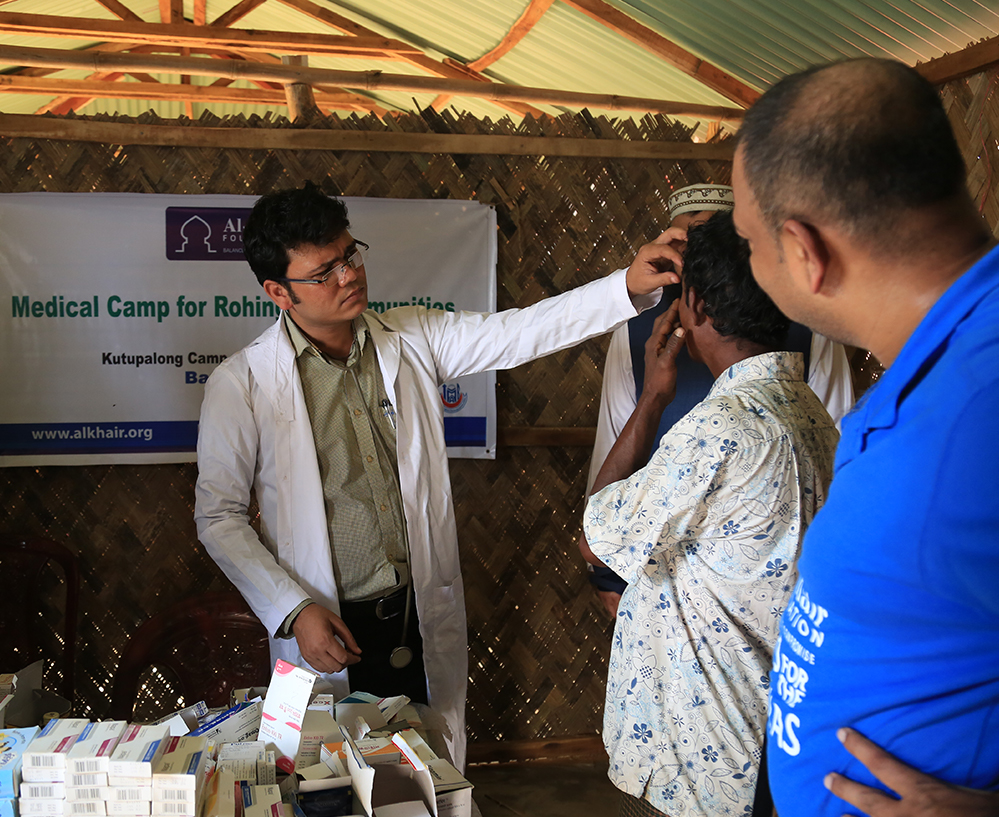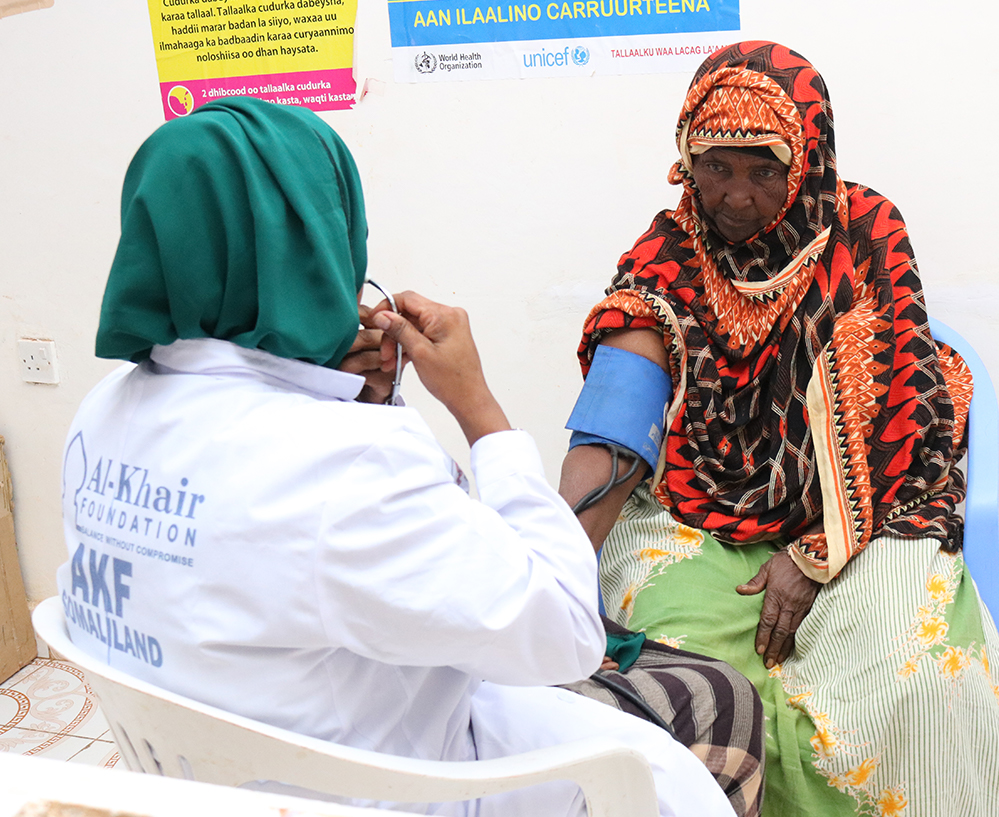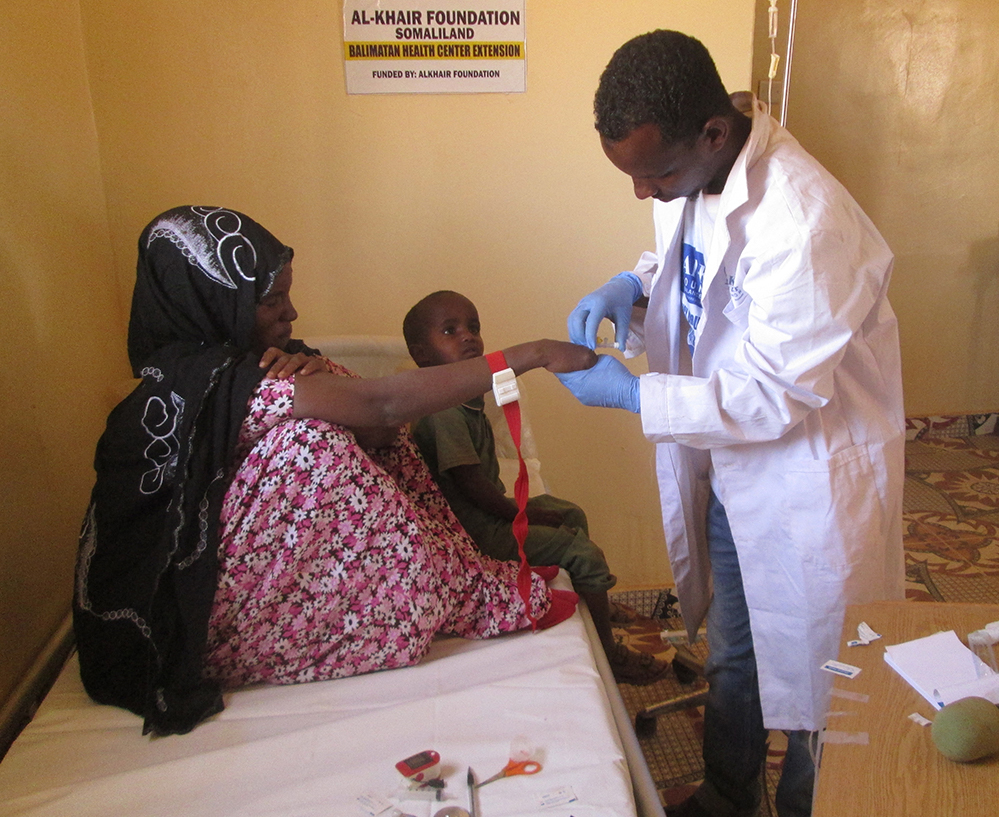Donations
Your Donation Cart is empty.
“….if any one saved a life, it would be as if he saved the life of the whole of mankind.” (Al Maida 05:32)
Ensuring healthy lives and promoting wellbeing is essential to sustainable development. Yet, according to the United Nations, half of the world’s population still lack access to basic health services. Guided by the Quran’s consistent emphasis on good health, Al-Khair Foundation is committed to providing the most vulnerable people and communities with the healthcare services they require.
The WHO states that children are at a greater risk of dying before the age of 5, if they are born in poor households, rural areas, or to mothers denied basic education.
Our projects range from disability support to paediatric and maternity care via our mobile medical units. For instance, in Kenya, Al-Khair Foundation constructed 3 separate medical services – 2 in the Nairobi country and 1 in the Garissa county. When the Kambioos refugee camp closed in 2017, we quickly partnered with the UNHCR to offer critical maternal and child health services to both the local and refugee population.
We are also proud to have implemented several longer term health projects: In Syria Al-Khair Foundation sponsored Raqqa hospital, the only free maternal and children’s hospital in the North East of war-torn Syria, which sees around 120,000 patients a year and in 2019 , we constructed a full-fledged landmark hospital in Gaza, providing healthcare to over 600,000 people.
“In emergency situations people are in need of many types of assistance. The one thing that cannot wait is access to healthcare as life depends upon this.” (Imam Qasim)
Highlights of our healthcare projects in 2020.
In Kenya, the Dadaab refugee camp located in Garissa Kenya, is the oldest and largest refugee camp in the world with a total population of 220,000 registered refugees and asylum seekers. The camp is further divided into three camps: Dagahley, Hagadera and Ifo. Refugee camps are areas in which healthcare is not always guaranteed nor easily provided.
AKF sought to change that and has been running a maternal health care center in Hagadera to reduce the rate of maternal and child mortality. The hospital also provides care for many other illnesses including dehydration and malnutrition. There is also a goal to introduce immunization services as well as antenatal and post-natal care to the refugees and host community living in the camp. This project seeks to benefit 22,000 individuals.

Slum dwellers make up 60% of Nairobi’s population despite occupying only 6% of the land. One such slum settlement is Kibera, the largest slum in Africa and amongst the biggest in the world, housing close to 1 million people. Maternal mortality stands at around 488 per 100,000 births.
AKF has been running a maternal clinic in Ayany, Kibera. The clinic comprises of a delivery room, a pre and post delivery room, a newborn unit, an observation room and a SGBV (sexual gender based violence) counselling room. AKF has also collaborated with Taiba medical center, offering low cost dental services to the people of Kibera and their neighbors. The maternal medical center has aided 5,000 beneficiaries.
Since 2015, in Somaliland there has been a continuing drought leading to an increase in cases of child and infant acute malnutrition. Al-Khair Foundation teamed up with DAN to support children suffering from malnutrition especially the ones with disabilities as well as those in danger of developing disabilities. It was decided that the most important action to take was to provide psychological support paired with stimulative therapy to children affected by SAM (Severe Acute Malnutrition) and MAM (Moderate Acute Malnutrition). There were multiple aims for this project one was to develop access to suitable rehabilitation, stimulation therapy and psychological services for some 400 children in Burao and Hargeisa. Another objective was to raise awareness and provide 110 parents/caregivers with information about nutrition to prevent an increase in SAM/MAM.
Case Study: Umalkhair Abdirahman Farah is an only child at 9 years old and lives at stadium IDP in Hargeisa. She was identified at the IDP by the community mobilizer who connected her with the CBR worker. After an assessment was carried out it was discovered that she had Cerebral Palsy, which is one of the main child disabilities in Somaliland. The assessment showed that she needed a wheelchair as well as physiotherapy exercise to prevent her condition from worsening. The wheelchair would enable the child to leave the house and stay sitting instead of lying on the ground. It will also enable her to benefit from the sun and get the necessary Vitamin D as well as help her to interact with other children for her intellectual development and exploring her external environment.

Situated 80km south of Hargeisa is the Balimatan IDP camp which houses 18,000 people. The camp initially shared a very small health facility comprising of only three rooms. With inadequate supplies, the health centre was unable to cope with the demand it received and so Al-Khair Foundation effected an extension project, adding on three extra rooms and an office. Al-Khair Foundation further provided capacity building training to the health center staff. The staff were also given medical supplies and comprehensive health intervention methods were established.
Al-Khair Foundation understood that despite the extra space given to the center, some of the illnesses suffered by the people in the camp were still too much for the health centre. Therefore, twice a month, AKF sent mobile medical teams led by a doctor to ensure the people received the healthcare they needed. The mobile medical teams provided free medical services including check-ups.
Gaza
The quality of healthcare in Gaza has declined and in some areas is non-existent. Patients are put on an agonizingly long waiting list with little to no hope of seeing a doctor. To tackle this crisis, AKF supported many cases, carefully selecting people on a needs basis and totally or partially covering the expenses of the essential surgeries, complying with their financial situation.
